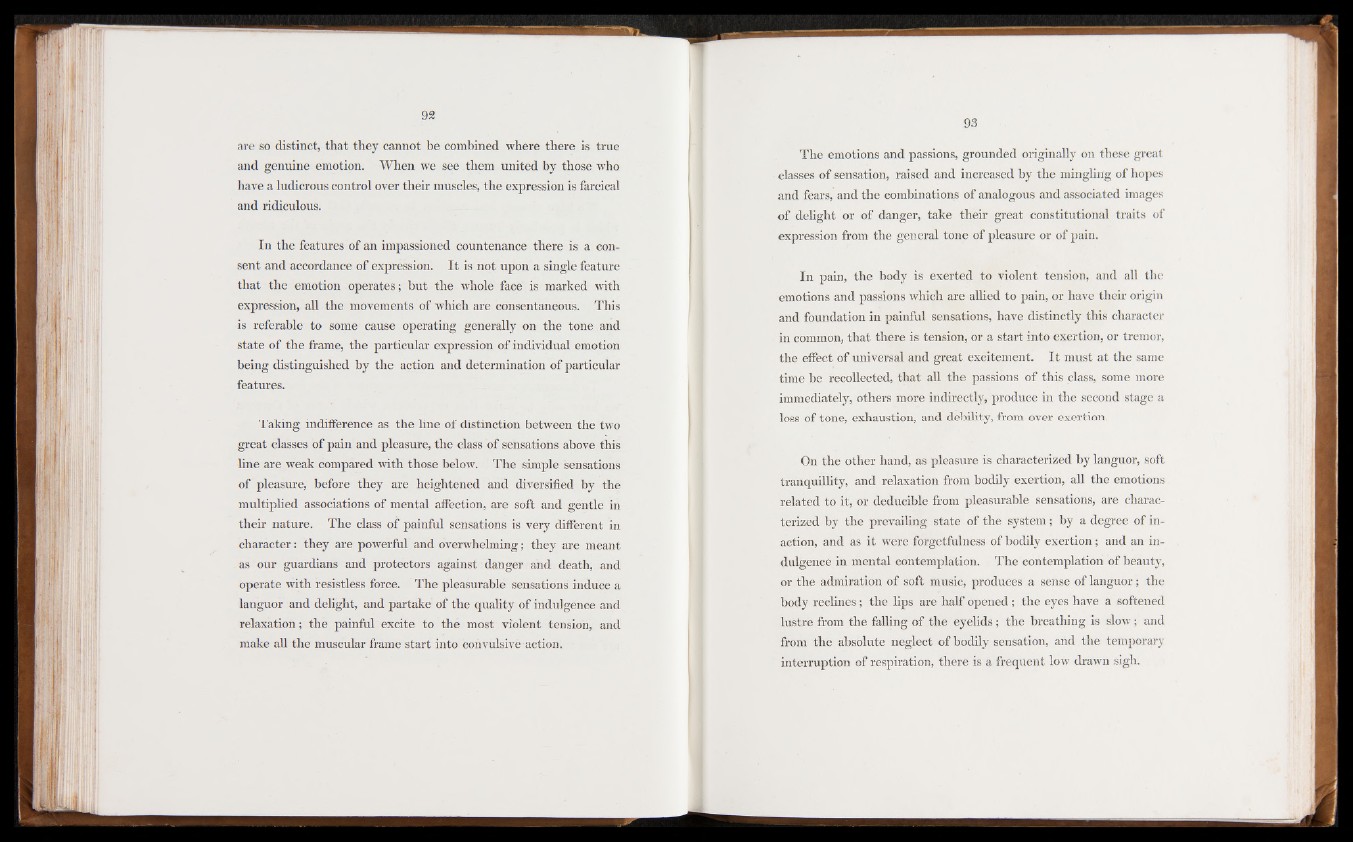
are so distinct, that they cannot be combined where there is true
and genuine emotion. When we see them united by those who
have a ludicrous control over their muscles, the expression is farcical
and ridiculous.
In the features of an impassioned countenance there is a consent
and accordance of expression. It is not upon a single feature
that the emotion operates; but the whole face is marked with
expression, all the movements of which are consentaneous. This
is referable to some cause operating generally on the tone and
state of the frame, the particular expression of individual emotion
being distinguished by the action and determination of particular
features.
Taking indifference as the line of distinction between the two
great classes of pain and pleasure, the class of sensations above this
line are weak compared with those below. The simple sensations
of pleasure, before they are heightened and diversified by the
multiplied associations of mental affection, are soft and gentle in
their nature. The class of painful sensations is very different in
character: they are powerful and overwhelming; they are meant
as our guardians and protectors against danger and death, and
operate with resistless force. The pleasurable sensations induce a
languor and delight, and partake of the quality of indulgence and
relaxation; the painful excite to the most violent tension, and
make all the muscular frame start into convulsive action.
The emotions and passions, grounded originally on these great
classes of sensation, raised and increased by the mingling of hopes
and fears, and the combinations of analogous and associated images
of delight or of danger, take their great constitutional traits of
expression from the general tone of pleasure or of pain.
In pain, the body is exerted to violent tension, and all the
emotions and passions which are allied to pain, or have their origin
and foundation in painful sensations, have distinctly this character
in common, that there is tension, or a start into exertion, or tremor,
the effect of universal and great excitement. It must at the same
time be recollected, that all the passions of this class, some more
immediately, others more indirectly, produce in the second stage a
loss of tone, exhaustion, and debility, from over exertion.
On the other hand, as pleasure is characterized by languor, soft
tranquillity, and relaxation from bodily exertion, all the emotions
related to it, or deducible from pleasurable sensations, are characterized
by the prevailing state of the system; by a degree of inaction,
and as it were forgetfulness of bodily exertion; and an indulgence
in mental contemplation. The contemplation of beauty,
or the admiration of soft music, produces a sense of languor; the
body reclines; the lips are half opened; the eyes have a softened
lustre from the falling of the eyelids ; the breathing is slow; and
from the absolute neglect of bodily sensation, and the temporary
interruption of respiration, there is a frequent low drawn sigh.